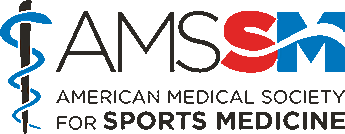The human shoulder allows for an incredible amount of motion. However, this also can put this joint at risk for injury. In order to perform movements like serving a tennis ball, combing your hair or reaching for something on the top shelf we have to coordinate muscles that stabilize and move the shoulder blade (scapula) and the arm (humerus). Injuries to these muscles and tendons can be bothersome and make daily activities difficult and painful. While there are many causes of shoulder pain, the following will review the symptoms, diagnosis and treatment of rotator cuff tears (RCTs). Rotator cuff tears are rare prior to 40 years of age but then become increasingly common as we age. It is important to note that not all RCT cause symptoms, but when you have shoulder pain that does not resolve or you have an injury it is important to seek medical attention.
- What are the symptoms of a RCT?
*Pain is often described as “dull and aching and “located deep in the shoulder”.
*Symptoms are often made worse with overhead activities, such as combing hair.
*Full thickness tears are likely accompanied by weakness.
*Many experience night pain, that is worse with sleeping on the affected side.
- How is a rotator cuff tear diagnosed?
Shoulder pain is common and can stem from issues other than a rotator cuff tear. After obtaining a history and performing a physical exam, your physician will decide if imaging is needed to help determine the type and severity of injury. MRI (Magnetic Resonance Imaging) and Ultrasound imaging are the primary imaging tools used to diagnose and characterize RCT’s. Both have similar sensitivity in locating and describing RCTs. An MRI can show very detailed pictures of your entire shoulder joint, where as an ultrasound provides direct, real-time visualization of the muscles and tendons as they move. However, if shoulder instability is a concern, a MRI with contrast is a more appropriate test. X-rays are often obtained to assess if arthritis or bone spurs are contributing to the pain. While helpful, X-rays cannot diagnose RCT.
- Does physical therapy help?
Physical therapy is the first step of treatment for most RCT’s. However, in the case of large RCT or sudden injury leading to marked shoulder weakness, early surgical repair may be indicated. Physical therapy proceeds in phases, initially improving range of motion, then focusing on improving function through strength and coordination of the muscles around the shoulder. Physical therapy can be more effective among individuals who are less than 60 years old and in those with partial thickness tears.
- Do injections help?
There is some evidence that subacromial steroid injections may provide short-term pain relief for those with partial rotator cuff tears and impingement symptoms. However, it is important to note that non-steroidal anti-inflammatory drugs (i.e. ibuprofen) may be equally effective. Repeat injections should be used with caution as there is an association with decreased durability of surgically repaired tendons. Also, injections do not “cure tears” and should generally be reserved for those with severe pain that limits participation in therapy or for those in whom surgery is not an option.
- When should I get surgery?
For partial and chronic RCTs a 6-12 week trial of non-surgical management, as described above, is appropriate. In the case of acutely worsening symptoms or weakness one should be re-evaluated to determine the severity and type of tear. If there is an acute, full thickness tear or a large chronic tear, an early surgical referral should be considered.


